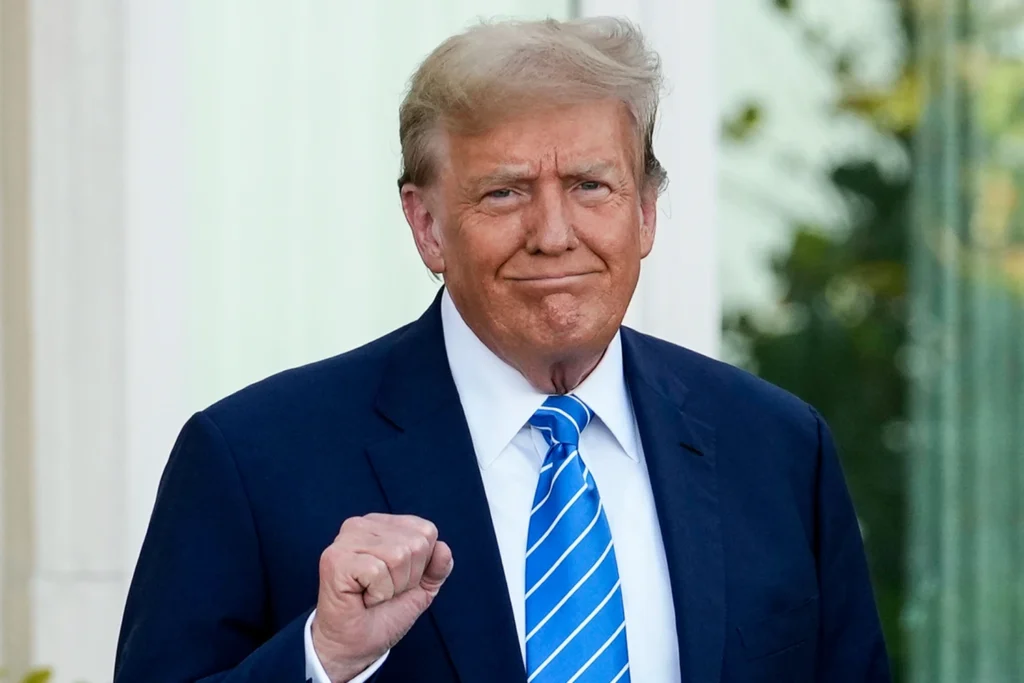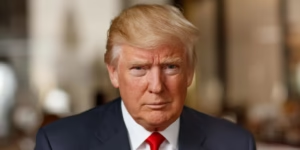Trump Files Lawsuit Against Des Moines Register, Alleging ‘Election Interference

President-elect Donald Trump has filed a lawsuit against The Des Moines Register, its parent company Gannett, and pollster Ann Selzer, accusing them of engaging in “brazen election interference” by publishing a pre-election survey that allegedly downplayed his popularity. The lawsuit, filed in Polk County, Iowa, late on Monday, claims that the poll, which showed Trump trailing Democratic candidate Kamala Harris by three percentage points in Iowa, intentionally misrepresented his level of support. Trump asserts that this was not an accident but a deliberate attempt to undermine his chances in the election.
The poll in question was released on November 2, just days before the election, and it generated significant media attention due to the surprising result. Iowa, a key swing state in previous presidential elections, was seen as a stronghold for Trump, who had won it by a comfortable margin in both the 2016 and 2020 elections. However, the Des Moines Register poll suggested that Harris was ahead by three points in the state, which was seen as a potential indication that the race in Iowa was closer than expected. Despite this, Trump won the state decisively in the actual election by more than 13 percentage points, prompting him to file the lawsuit.
Trump’s legal team argues that pollster Ann Selzer’s failure to accurately predict Trump’s strong performance in Iowa was not a mere statistical error, but a deliberate attempt to influence the election. The lawsuit asserts that Selzer “knew exactly what she was doing” and that the polling result was designed to create a misleading narrative about the election outcome in Iowa. The claim is built around allegations of consumer fraud, as the lawsuit asserts that the poll misled voters and the public, potentially influencing their decisions in the final days of the election.
In response, The Des Moines Register and its parent company Gannett have defended their poll and reporting. Lark-Marie Anton, a spokesperson for the newspaper, stated that they stood by their reporting and viewed Trump’s lawsuit as lacking merit. She noted that the full demographics, cross-tabulated data, and technical explanations from Ann Selzer had been released to the public to provide transparency regarding the poll’s methodology. The newspaper emphasized that while the poll did not perfectly reflect the election result, it had made all necessary data publicly available to clarify its findings.
Selzer, the pollster who conducted the survey, also responded to the lawsuit by expressing confusion over the accusations. In an interview with PBS, she said she could not understand why anyone would believe that she had designed the poll to produce a particular outcome. She maintained that her goal was to accurately reflect public opinion and that any discrepancies between the poll’s predictions and the election results were simply part of the inherent uncertainty in polling.
Trump’s lawsuit follows a series of legal actions against media outlets. Recently, he settled a defamation lawsuit against ABC News over an erroneous claim made by anchor George Stephanopoulos, who had incorrectly stated that Trump had been found civilly liable for rape. Trump’s litigious approach, particularly against media organizations, has raised concerns among free speech advocates, who fear that such lawsuits could have a chilling effect on the press.
One such organization, the Foundation for Individual Rights and Expression, has condemned Trump’s lawsuit as a “direct assault” on the First Amendment. They argue that if media outlets and polling firms are sued for publishing results or stories that politicians do not like, it could threaten the very foundation of free speech in the U.S. The group stressed that getting a poll wrong is not tantamount to election interference or fraud, and that allowing lawsuits like Trump’s to succeed would undermine journalistic independence and the public’s access to accurate information.
Despite the challenges that Trump’s lawsuit faces in light of the strong First Amendment protections in the U.S., it could still have significant ramifications. Legal experts believe that proving fraud or intentional deception in a case like this is difficult, as courts tend to protect the press from frivolous lawsuits. However, the lawsuit could force media organizations to reveal potentially embarrassing internal communications, as well as subject journalists and executives to depositions, which could cause reputational harm or financial strain even if the case is ultimately dismissed.
While Trump’s legal challenge faces significant hurdles due to the First Amendment protections and the difficulty in proving fraud in this context, it could still have a profound impact on the media landscape. The outcome of the case could shape how news organizations approach polling, reporting, and the risks they face when politicians take legal action against them over unfavorable results.







